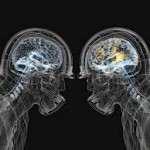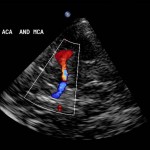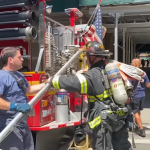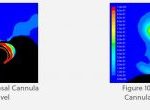 Note: This article is in response to West End, Pennsylvania Ambulance Services’ ‘One Breath From Death’ Campaign which NeuroEMS.com considers to be unscientific and unethical. Click here to learn more.
Note: This article is in response to West End, Pennsylvania Ambulance Services’ ‘One Breath From Death’ Campaign which NeuroEMS.com considers to be unscientific and unethical. Click here to learn more.
Here’s what you need to know:
1. The initial decision to take drugs is usually voluntary and people make this choice for various reasons such as curiosity or peer pressure. In young adults, the brain is not considered to be fully ready to make proper choices until the mid-twenties. Often teens make poor decisions about drugs because they simply don’t have all the circuitry in place yet.
2. The neurochemistry of the brain is permanently changed by the drug. This involves up/down regulation of receptors (think, the drug is an incredibly loud sound and the brain ‘turns down the volume’ by changing the number of receptors)
3. The brain changes hamper the individuals ability to make responsible choices regarding drug use as the brain actually needs the drug to operate “normally” (due to the changes). Understand that the same signaling compounds that create the “high” are imperative for normal functioning. These drugs overwhelm the reward circuitry in the brain creating pleasure. The marketing industry also uses neuroscience to modulate the brain’s reward pathways to make more sales…’addicted’ to a favorite show, food or story, anyone?
4. Due to initially lax drug policy in the US, a vast number of persons became addicted to opiates due to physician overprescribing. Understand that we live in a world where multibillion dollar per-year-revenue pharmaceutical companies make both the addicting drug and medicines which are supposed to ‘help’. They profit immensely from both sides of this funnel.
5. Compassion, love and understanding is the prescription for addiction. While these patients can be challenging to you…understand that their disease is also challenging them…and often they do not have full cognitive control over the choice to use repetitively. No matter the circumstances, the response is always professionalism and compassion. Addictive disorders are some of the most challenging conditions and “supportive care” is a must. EMS is at the forefront of emergency medicine therefore we should be at the forefront of shattering mental health stigma and providing compassionate, non-judgemental care.
For more, please check out The National Council on Drug Addiction and Dependency









